![Radigue, Eliane: Opus 17 [2 CDs] (Important Records) Radigue, Eliane: Opus 17 [2 CDs] (Important Records)](https://www.teuthida.com/productImages/misc4/31202.jpg)
French electroacoustic composer and innovator Eliane Radigue's final work made with feedback material from 1970, five pieces that strip away at the familiar, deconstructing and decomposing classical works into mesmerizing drones, or creating rich pulsating works of sound with intense harmonic development and controlled feedback, a powerful opus of sound.
Out of Stock
Quantity in Basket: None
Log In to use our Wish List
Shipping Weight: 3.00 units
Sample The Album:
Eliane Radigue-processed tape recorder feedback
Click an artist name above to see in-stock items for that artist.
UPC: 793447549712
Label: Important Records
Catalog ID: IMPREC 497CD
Squidco Product Code: 31202
Format: 2 CDs
Condition: New
Released: 2021
Country: USA
Packaging: Jewel Case
Recorded at Centre Artistique de Verderonne, on May 23rd, 1970.
"Eliane Radigue's complete Opus 17 (1970), her finest and final work created using feedback, is contained on this double CD. With Opus 17, Radigue perfected her slow mixing technique with sublime results. Imperceptible transformations envelop the attentive listener who is confronted with an immensely physical experience. Time is suspended in powerfully poetic and artful ways as Radigue masterfully sculpts the physical matter of sound using feedback for the last time. Opus 17 is an absolutely essential masterpiece in the realm of early electro-acoustic/drone/minimalist composition."-Important
"'Opus17' - her last work made with feedback material. It's one of the strongest, if not definitive, examples of Radigue's tactile and meditative approach to composition, an engrossing, intuitive refinement of the techniques and practice she honed over prior years at RTF's Studio d'essai under the guidance of Pierre Schaeffer and Pierre Henry's Studio Apsome, and later at the New York University School of the Arts.
Created at the Fête en blanc - White Festival - in Verderonne on May 23, 1970, 'Opus17' breaks down to five pieces making up a mesmerising voyage to the heart of the drone. Using various early tape techniques, Eliane meticulously, imperceptibly peels the source samples in a discreet microcosmos of morphing, moebius-like loops and shimmering overtones, rendering their vibrational energy and unique accents with a poetic, dreamlike quality.
It opens with a relative shock in the 19 minute self-portrait of 'Etude', where she gradually transforms a looped passage of Frederick Chopin into an opiated, howling ghost of itself using practically identical microphone and tape feedback procedures to those on Alvin Lucier's 'I Am Sitting In A Room' (although it should be noted that she wasn't aware of this at the time), whilst 'the shorter 'Maquette' applies the same technique using a part of Wagner's 'Parsifal', but this time with the sample subtracted leaving only a spectral trace of grandeur.
Following this, we're floored by the roiling pulsations of 'Epure' - a sort of rudimentary pre-cognition of industrial and minimal techno building palpitating throbs into a dense yet delicate and ferric-rich flux, sharing rhythmic similarities with the aptly titled trip of 'Safari', where elliptic bass patterns melt and congeal in morphing shapes and curdled overtones with an alien, otherworldly quality presaging the like of Rashad Becker.
Yet, the ultimate exposition of Eliane's time-dilating technique is found in the 22 and a half minute panoramic excursion 'Number 17', examining her sonic phenomena at microscopic level, homing in and expanding on its globular bass shapes and radiant harmonics. Even by Radigue's standards, this is a breathtaking and beguiling body of work, opening up whole worlds of sound from so very, very little."-Alga Marghen (notes from the 2013 LP reissue)
Artist Biographies
• Show Bio for Eliane Radigue "Eliane Radigue was born in Paris, France. She studied electroacoustic music techniques at the Studio d'essai at the RTF, under the direction of Pierre Schaeffer and Pierre Henry (1957-58). She was married to the artist, Arman, and devoted ten years to the education of three children, deepening classical music studies and instrumental practice on the harp and piano at the same time. In 1967-68 she worked again with Pierre Henry, as his assistant at the Studio Apsome. Radigue worked for a year at the New York University School of the Arts in 1970-71. Her music, its source an Arp synthesizer and medium recording tape, attracted considerable attention for its sensitive, dappled purity. She was in residence at the electronic music studios of the University of Iowa and California Institute of the Arts in 1973. Becoming a Tibetan Buddhist in 1975, Radigue went into retreat, and stopped composing for a time. When she took up her career again in 1979, she continued to work with the Arp synthesizer which has become her signature. She composed Triptych for the Ballet Théâtre de Nancy (choreography by Douglas Dunn), Adnos II & Adnos III, and began the large-scale cycle of works based on the life of the Tibetan master, Milarepa. In 1984 Radigue received a "bourse à la creation" from the French Government to compose Songs of Milarepa, and a "commande de l'état" in 1986 for the continuation of the Milarepa cycle with Jetsun Mila. Notoriously slow and painstaking in her work, Radigue has produced in the last decade or so on average one major work every three years. Very recently, in response to the demands of musicians worldwide, she has begun creating works for specific performers and instruments together with electronics. The first of these was for bass player Kaspar Toeplitz, and more recently the American cellist Charles Curtis. Performances of her music have taken place at galleries and museums such as the Salon des Artistes Decorateurs (Paris), Foundation Maeght (St. Paul de Vence), Albany Museum of the Arts (New York), Galerie Rive Droite (Paris), Gallery Sonnabend (New York), Galerie Yvon Lambert (Paris), and Galerie Shandar (Paris); at festivals including the Festival de Como (Italy), the Festival d'Automne a Paris, Festival Estival (Paris), International Festival of Music (Bourges, France); and at the New York Cultural Center, Experimental Intermedia Foundation (New York), The Kitchen (New York), Columbia University (New York), Vanguard Theatre (Los Angeles), LACE (Los Angeles), Mills College (Oakland), University of Iowa, Bennington School of Music, the San Francisco Art Institute, and the NEMO Festival (Chicago 1996). She has appeared on many broadcast programs including France Culture, France Musique, distribution via satellite covering over 50 stations in the U.S. including special programs on KPFK (Los Angeles) and KPFA (San Francisco). Radigue currently lives in France, where she continues to compose electronic music and study the teachings of the Tibetan lamas. She returns to the United States periodically to present programs of her electronic works." ^ Hide Bio for Eliane Radigue
12/17/2025
Have a better biography or biography source? Please Contact Us so that we can update this biography.
Track Listing:
CD1
01. Etude 19:05
02. Maquette 11:16
03. Epure 15:19
CD2
01. Safari 21:54
02. N 17 22:32
Electro-Acoustic
Electroacoustic Composition
Compositional Forms
Electronic Forms
Sound, Noise, &c.
Solo Artist Recordings
Staff Picks & Recommended Items
New in Experimental & Electronic Music
Search for other titles on the label:
Important Records.


![Radigue, Eliane: Opus 17 [2 CDs] (Important Records) Radigue, Eliane: Opus 17 [2 CDs] (Important Records)](https://www.teuthida.com/productImages/full/31202.Full.jpg)



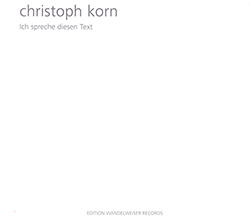
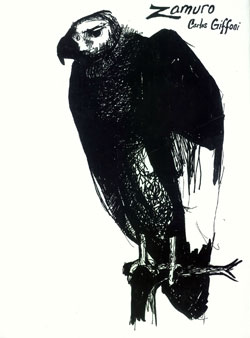
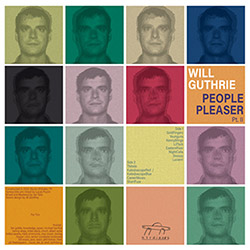

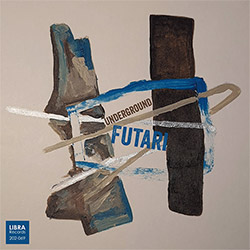







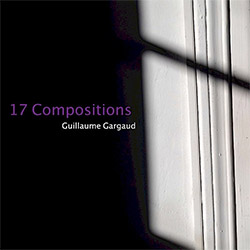


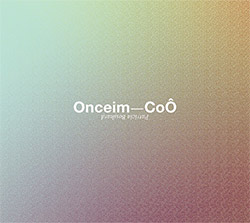
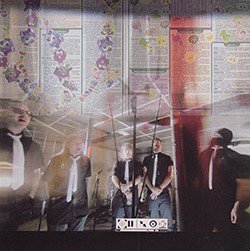
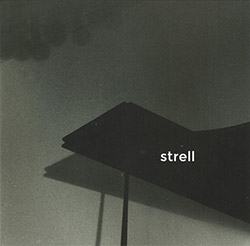
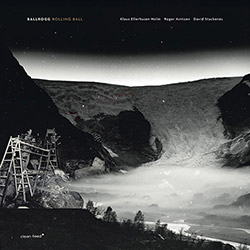
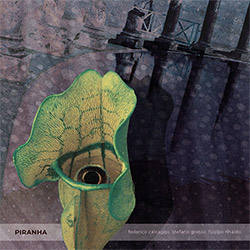
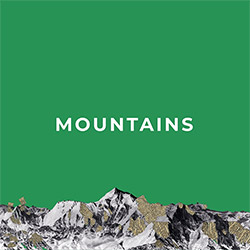
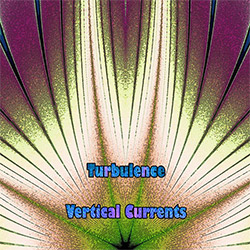
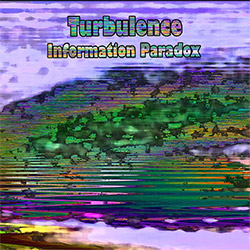

![HobbyHouse (Mia Dyberg / Axel Filip): HobbyHouse [CD + DOWNLOAD]](https://www.teuthida.com/productImages/misc4/36944.jpg)
![Mines, Kelsey / Erin Rogers: Scratching At The Surface [CD + DOWNLOAD]](https://www.teuthida.com/productImages/misc4/36945.jpg)
![Nebbia, Camila (feat/ Marilyn Crispell / Lesley Mok): A Reflection Distorts Over Water [CD + DOWNLOAD]](https://www.teuthida.com/productImages/misc4/36946.jpg)
![Vanheerentals, Adia: Taking Place [CD + DOWNLOAD]](https://www.teuthida.com/productImages/misc4/36947.jpg)
![Mines, Kelsey / Vinny Golia: Collusion and Collaboration [CD + DOWNLOAD]](https://www.teuthida.com/productImages/misc4/36948.jpg)
![Parkins, Zeena: Lament For The Maker [CD + DOWNLOAD]](https://www.teuthida.com/productImages/misc4/36949.jpg)
![Evans, Peter / Mike Pride : A Window, Basically [CD + DOWNLOAD]](https://www.teuthida.com/productImages/misc4/36950.jpg)


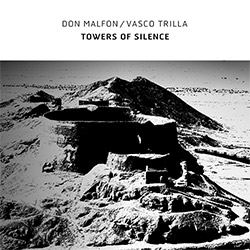
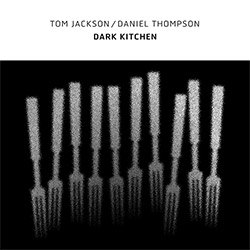
![Frey, Jurg : Composer, Alone [3 CDs]](https://www.teuthida.com/productImages/misc4/36927.jpg)
![Belorukov, Ilia / Alex Riva: Wrestling For Futility [CASSETTE w/DOWNLOAD]](https://www.teuthida.com/productImages/misc4/36994.jpg)
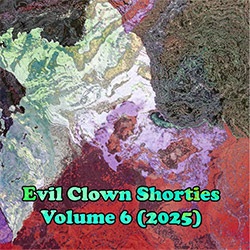
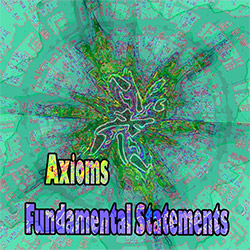










![Agnel, Sophie: Learning [VINYL]](https://www.teuthida.com/productImages/misc4/36841.jpg)

![Monaco, Amanda (w/ Michael Attias / Sean Conly / Satoshi Takeishi) : Deathblow [VINYL+ DOWNLOAD]](https://www.teuthida.com/productImages/misc4/36956.jpg)
![Frey, Jurg with ensemble]h[iatus: Je Laisse A La Nuit Son Poids D](https://www.teuthida.com/productImages/misc4/36988.jpg)
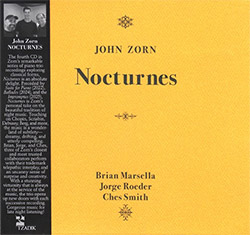
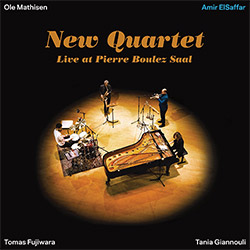
![ElSaffar, Amir / New Quartet : Live at Pierre Boulez Saal [VINYL]](https://www.teuthida.com/productImages/misc4/36830.jpg)

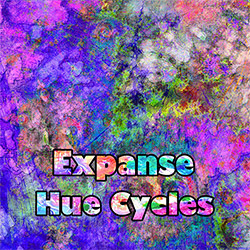
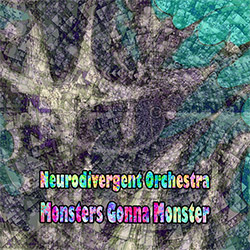
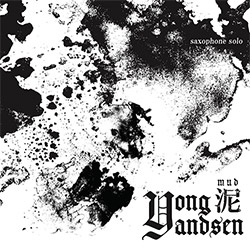

![Musicworks Magazine: #152 Fall 25 [MAGAZINE + CD]](https://www.teuthida.com/productImages/misc4/37004.jpg)
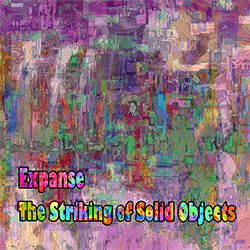




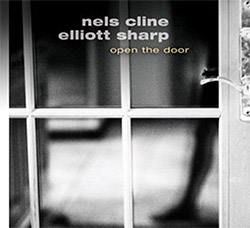
![[ahmed] (Thomas / Grip / Gerbal / Wright): Sama](https://www.teuthida.com/productImages/misc4/36976.jpg)

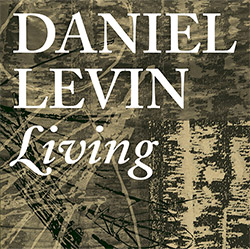
![Cleaver, Gerald / Brandon Lopez / Hprizm: In The Wilderness [COLOR VINYL]](https://www.teuthida.com/productImages/misc4/33060.jpg)
![McPhee, Joe : Defiant Jazz: a Joe McPhee Taster [VINYL]](https://www.teuthida.com/productImages/misc4/36859.jpg)
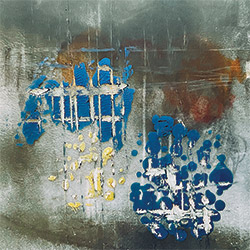
![Mateen, Sabir / Patrick Holmes / Federico Ughi : Survival Situation [LTD VINYL LP + DOWNLOAD]](https://www.teuthida.com/productImages/misc4/29891.jpg)
![Tucker, Dave / Pat Thomas / Thurston Moore / Mark Sanders: Educated Guess Vol. 1 [COLORED VINYL]](https://www.teuthida.com/productImages/misc4/30183.jpg)
![Sarian, Michael / Matthew Putman: A Lifeboat (Part I) [COLORED VINYL]](https://www.teuthida.com/productImages/misc4/30426.jpg)

![Genthon, Anouck / Lionel Marchetti: Suite Blanche [2 CDs]](https://www.teuthida.com/productImages/misc4/36642.jpg)
![Toeplitz, Kasper T.: Erosions Programmees [CD + BOOKLET]](https://www.teuthida.com/productImages/misc4/36639.jpg)
![Gate, The : Amost Live [CASSETTE + MAGAZINE]](https://www.teuthida.com/productImages/misc4/36836.jpg)






![A Magic Whistle: The Solar Cell [VINYL]](https://www.teuthida.com/productImages/misc4/36658.jpg)

![McGee, Hal: Columbus Expedition [Cassette w/ Download]](https://www.teuthida.com/productImages/misc4/36650.jpg)


![Jaeger, Kassel: Fernweh [VINYL 2 LPs]](https://www.teuthida.com/productImages/misc4/36541.jpg)





![+DOG+: The Light Of Our Lives [2 CDs]](https://www.teuthida.com/productImages/misc4/36009.jpg)


![Eternities: Rides Again [CASSETTE]](https://www.teuthida.com/productImages/misc4/36247.jpg)

![Lopez, Francisco: Untitled (2021-2022) [2 CDs]](https://www.teuthida.com/productImages/misc4/36438.jpg)





![Pisaro-Liu, Michael: Within (2) / Appearance (2) [2 CDs]](https://www.teuthida.com/productImages/misc4/36831.jpg)










![Musicworks Magazine: #151 Summer 25 [MAGAZINE + CD]](https://www.teuthida.com/productImages/misc4/36559.jpg)

![Brown, Dan / Dan Reynolds: Live At The Grange Hall [unauthorized][CASSETTE]](https://www.teuthida.com/productImages/misc4/36245.jpg)


![Zorn, John: The Song of Songs [CD + CD BOOK]](https://www.teuthida.com/productImages/misc4/36923.jpg)

![Coultrain: Mundus [COLORED VINYL]](https://www.teuthida.com/productImages/misc4/33056.jpg)
![Hprizm: Signs Remixed [COLORED VINYL]](https://www.teuthida.com/productImages/misc4/30635.jpg)
![Halls Of the Machine: All Tribal Dignitaries [CASSETTE w/ DOWNLOAD]](https://www.teuthida.com/productImages/misc4/36134.jpg)



![Koenjihyakkei: Live at Club Goodman [2 CDs]](https://www.teuthida.com/productImages/misc4/36111.jpg)

![Sorry For Laughing (G. Whitlow / M. Bates / Dave-Id / E. Ka-Spel): Rain Flowers [2 CDS]](https://www.teuthida.com/productImages/misc4/35985.jpg)

![Rolando, Tommaso / Andy Moor : Biscotti [CASSETTE w/ DOWNLOADS]](https://www.teuthida.com/productImages/misc4/36106.jpg)


![Electric Bird Noise / Derek Roddy: 8-10-22 [CD EP]](https://www.teuthida.com/productImages/misc4/35970.jpg)








![Elephant9 : Mythical River [VINYL]](https://www.teuthida.com/productImages/misc4/34624.jpg)



![Elephant9 with Terje Rypdal: Catching Fire [VINYL 2 LPs]](https://www.teuthida.com/productImages/misc4/35355.jpg)
![Coley, Byron: Dating Tips for Touring Bands [VINYL]](https://www.teuthida.com/productImages/misc4/17906.jpg)

![Lost Kisses: My Life is Sad & Funny [DVD]](https://www.teuthida.com/productImages/misc4/lostKissesDVD.jpg)